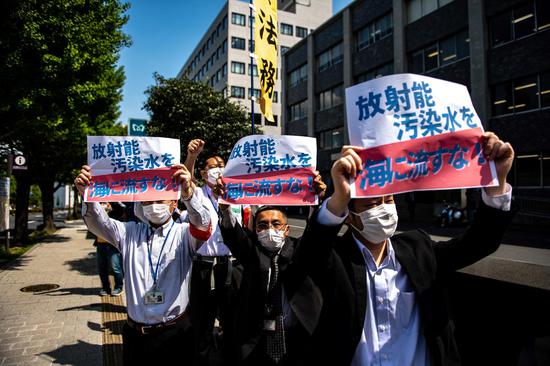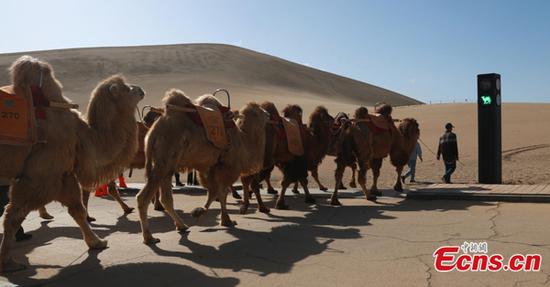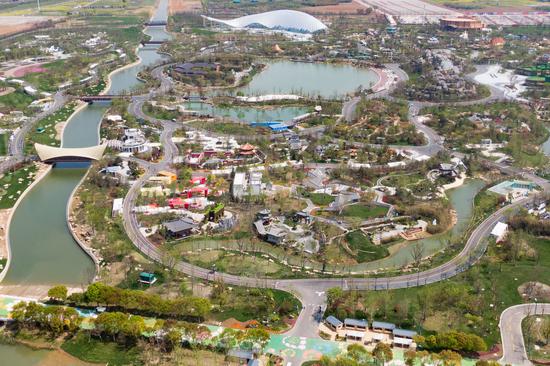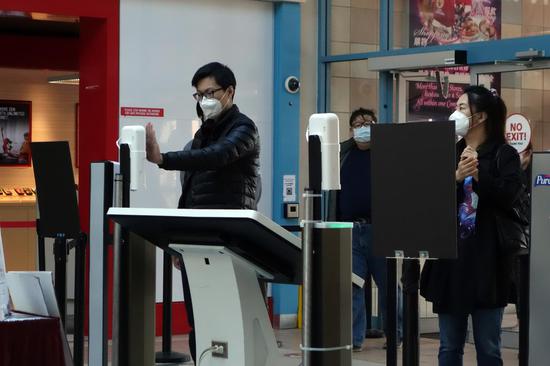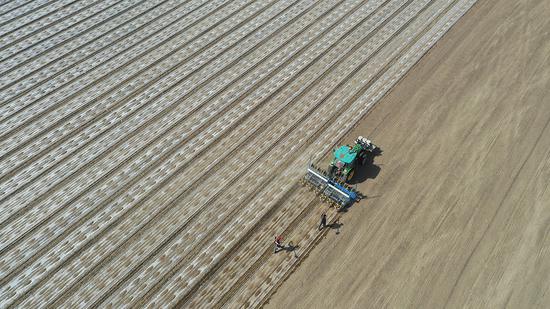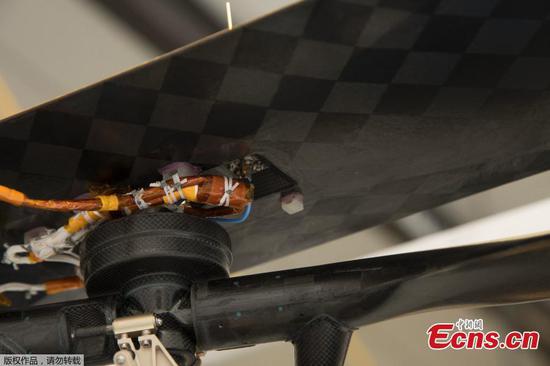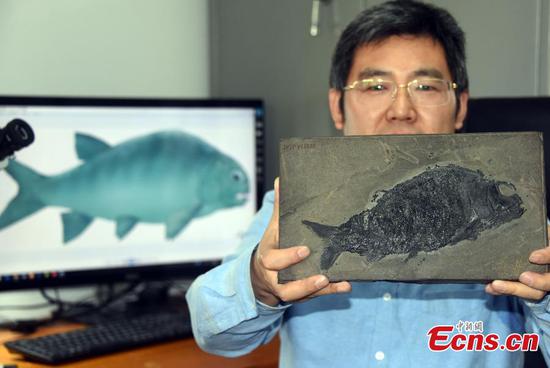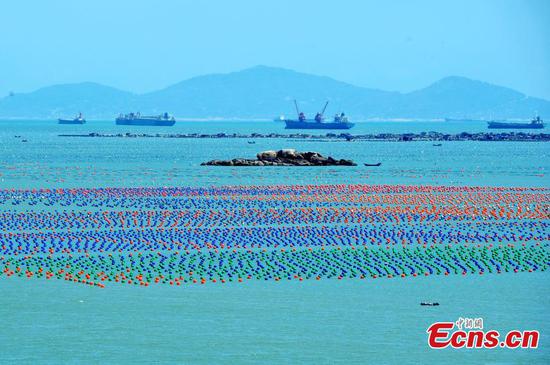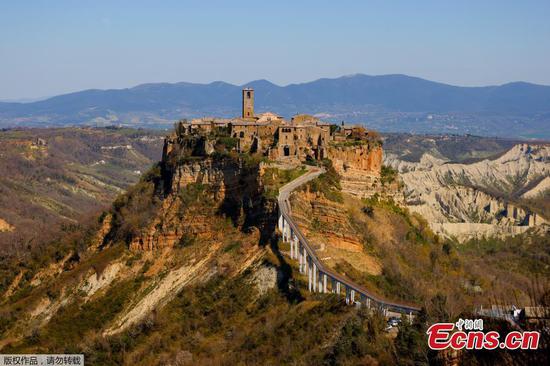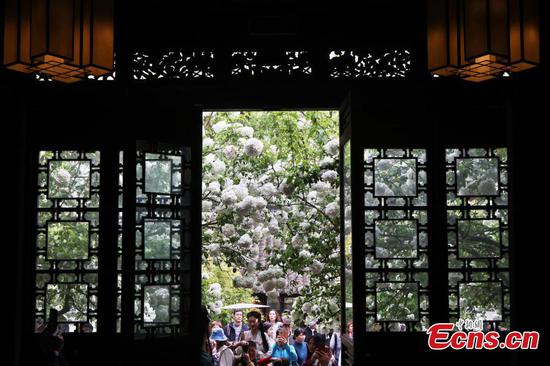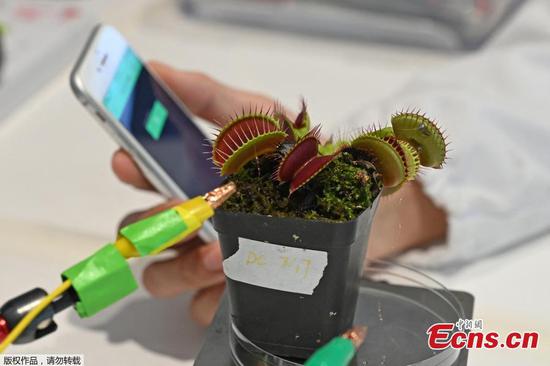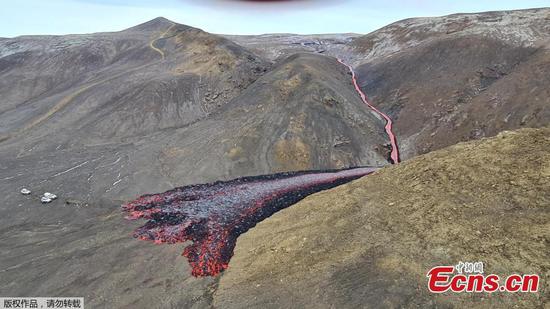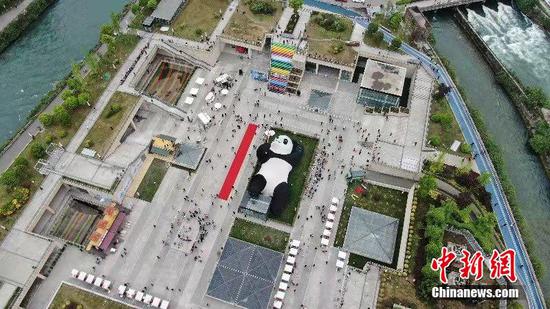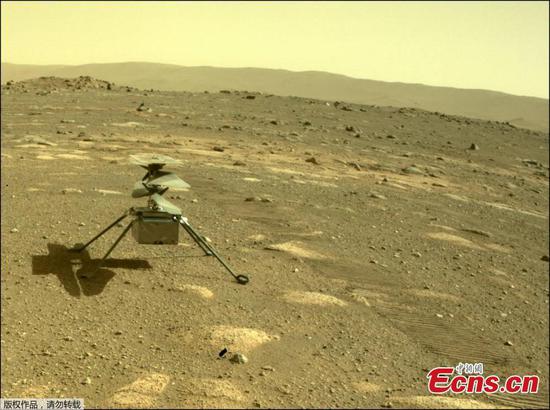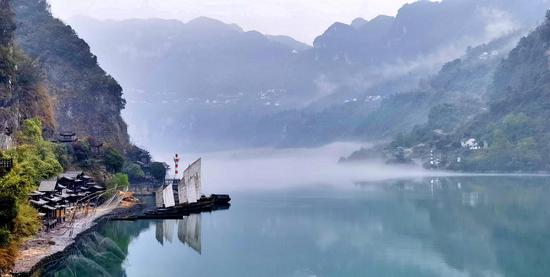A dozen sprinklers start working after Shi Changsuo presses a button on a remote control in his hand, and in less than a day his 4,000 square meters of farmland is irrigated.
Modern irrigation contrasts with the days in the 1980s when villagers like Shi in rural areas of Central China's Henan province had to wait in line and water their crops day and night with the help of pumps and pipelines.
"Compared with the traditional way, this method of irrigation saves water, time and energy," the 54-year-old said.
Shi's farmland is part of a high-standard farmland demonstration area that spans more than 600 hectares in Henan's Weishi county. The area has introduced sprinklers, drip irrigation and other advanced irrigation facilities.
China plans to add 18.3 million hectares of high-standard farmland in the next five years, which will bring the total area of high-standard farmland to 71.6 million hectares by 2025. An additional 4 million hectares of farmland will be equipped with efficient water-saving irrigation facilities.
This year, an additional 1 million hectares of farmland will benefit from water-saving irrigation facilities, the Ministry of Agriculture and Rural Affairs said.
On another plot in Weishi, retractable sprinklers are buried underground. Farmers can turn on the system using their cellphones before sprinklers automatically pop out of the ground and start spraying water in all directions.
"The irrigation system hidden underground does not affect plowing and fertilizing. It also saves up to 65 percent of water compared to traditional irrigation," said Chen Leiyang, a specialist maintaining the system.
Henan is a major agricultural province with limited water resources. Local people have a long tradition of seeking ways to save water in farmland irrigation.
In the 1950s, farmers in Dongsizhuang village in Yanshi started using a rubber ball to control the water outlet of an underground earthenware waterway.
"The floating rubber ball could block the water from flowing out of the outlet, and we could have water by simply pressing down on the ball with a wooden stick to unblock the outlet," villager Lyu Shaowu, 79, said, adding that compared with mud ditches, earthenware pipes had prevented a great deal of water leakage.









